Posts Tagged ‘Forward Together’
Go Far, Go Deep, Go Together in 2023
When I was a student at Fuller Theological Seminary, one of my professors, Bryant Myers, taught me that, “At the heart of poverty is broken relationships.”
Years later, that teaching shapes the way I see the world and the way I lead at World Relief.
Myers taught that before the fall, God established five foundational relationships that each person was created to live within: relationship with God, with self, with others, with community and with creation.
When these relationships function properly, they make way for human flourishing. But when one or more of them is broken, they precipitate all types of poverty in our lives and in the lives of others:
- Broken relationships with others can cause conflicts.
- Broken relationships with creation deprive us of God’s life-giving intention for the earth — that everyone has access to beauty and sustainable food, water and resources.
- Broken relationships with ourselves mar our ability to see the potential for change and transformation.
- And broken relationships with God keep us from experiencing grace and restoration.
Current Crises, Broken Relationships
Over the last year, we’ve talked at length about how COVID, conflict and climate change have converged to create the worst humanitarian crisis we’ve seen in decades.
In these crises, we see evidence of broken relationships. War displaces families from their homes. Communities suffer the effects of natural disasters. Women and girls face increased violence and discrimination. Our own brokenness often leaves us feeling hopeless and unable to engage, while pride and division prevent us from seeking collaborative solutions to these complex problems.
It’s clear that the old paradigms of providing humanitarian aid may not be enough. If we want to move forward, we must embrace a new vision. We must remember that a flourishing world is a connected world, and it takes all of us to create change that lasts.
At World Relief, we’ve long been committed to addressing our world’s problems holistically, making way for people and communities to restore relationships and flourish. For nearly 80 years, we’ve been moving with local churches and community leaders as they create lasting change, and many of you have moved right along with us.
As we settle into the new year, the problems facing us in 2022 have not been left behind. But thanks to the generosity of people like you, World Relief is poised and ready to meet the emerging needs of our world. Together, we will go far, go deep and go together in 2023, and I’m eager to tell you how.
Go Far: Ukraine, Chad and Ethiopia
Since February 2022, World Relief has partnered with local churches and Christian agencies in Ukraine, responding to the devastating war that continues to unfold. This summer, it became evident that a long-term presence in Ukraine was necessary to meet the immense needs that will extend for years to come.
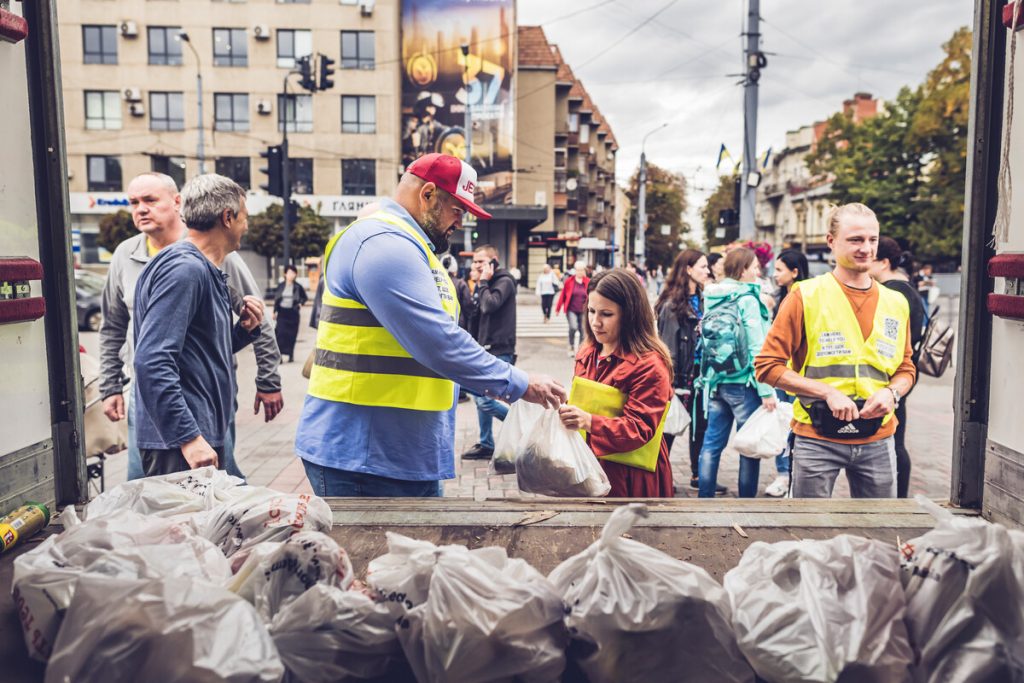
World Relief has decades of experience working in current and post-conflict settings. Our team in Ukraine will build upon our technical experience to increase the capacity of local churches to meet the physical and spiritual needs of those impacted by the war.
In Chad, we’ve also found an opportunity to strengthen local churches to meet the needs of the most vulnerable.
The Southern portion of Chad is a Christian-majority region where population density is high and humanitarian actors are few. Existing local, faith-based NGOs are in need of capacity-building support from an international Christian NGO like World Relief to scale and expand impact.
We expect the Chad office to open in early 2023, and we will also be moving forward with plans to open an office in Ethiopia as well.
Go Deep: Mental Health Counseling and Disability Inclusion
While others might focus on one area of intervention or only provide immediate assistance, we remain committed to responding to needs holistically with proven solutions that last.
For refugees and other immigrants, this means addressing the profound physical and psychological trauma many endure when they are forced to leave their homes and rebuild their lives in an entirely new culture.
World Relief offices in Chicagoland and North Carolina have been providing mental health counseling to refugees for more than 20 years. In 2023, we’re expanding this service line to more offices to better meet the needs of those experiencing displacement.
Our commitment to thriving societies is also reflected in the depth of our disability-inclusive programming. People with disabilities represent some of the most marginalized, making up 20% of the world’s poorest in developing countries.
World Relief Malawi piloted disability-inclusive programming in 2019, reaching more than 400 people through church-led initiatives in the first two years. Since then, we have expanded disability-inclusive programming to church networks in Burundi and Rwanda, and are making plans to train churches in six more countries across the globe.
Go Together: Creating Lasting Change
At the heart of our commitment to going further and deeper is our commitment to going together, equipping the individual and collective expressions of the church to live out their call to serve in both word and deed.
Our newly formed Church and Community Engagement Team is working hard to engage more people and more congregations in creating welcoming communities for immigrants in the U.S.
Globally, our Outreach Group Initiative continues to equip volunteers to meet the spiritual and physical needs of their neighbors, while savings groups are bringing people together, providing support and friendship as communities are transformed economically.
And then there’s you — as you move forward this new year, my prayer is that you would see yourself as part of a global movement that is creating change across the globe. I pray you’d find ways to strengthen the relational connections in your own life so the ripple effects of lasting change can continue to expand.
The challenges we face are great. But, by the power of Jesus, hope is even greater when we go forward together.
Do you want to be a part of this global movement? You can make a difference in 2023 by joining World Relief. Learn more and give today.
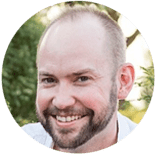
Myal Greene has a deep desire to see churches worldwide equipped, empowered, and engaged in meeting the needs of vulnerable families in their communities. In 2021, he became President and CEO after serving for fourteen years with the organization. While living in Rwanda for eight years, he developed World Relief’s innovative church-based programming model that is currently used in nine countries. He also spent six years in leadership roles within the international programs division. He has previous experience working with the U.S. Government. He holds B.S. in Finance from Lehigh University and an M.A. from Fuller Theological Seminary in Global Leadership. He and his wife Sharon and have three children.
Churches in Washington are Using Coffee to Change the Lives of Refugees and Immigrants
If you’ve been to Western Washington, you know that coffee is a big deal. Seattle consistently ranks near the top of “best coffee cities in America.” One analysis even found there are 56 coffee shops for every 100,000 people.
Coffee is such a big deal, in fact, that many local churches have fully outfitted coffee shops to meet the caffeine needs of Sunday morning guests. But what if those coffee shops could serve an even bigger purpose — what if they could help welcome refugees and immigrants?
That’s the question Holly Andrews asked herself when she moved to Washington in 2011.
The Seed of an Idea
Holly’s interest in welcoming refugees and immigrants started when she tutored a Somali family in college through World Relief. “It was such a great adventure getting to know [the family’s] culture and language, sharing food together and growing in a trusting relationship,” Holly said.
Inspired by this family’s story and a growing awareness of her refugee and immigrant neighbors, Holly went on to become a teacher for English language learners, eventually completing her masters in linguistics.
Later, while working at Bethel University in Minnesota, she led a study-abroad course in Cambodia where the seed of an idea was planted.
One of the agencies she and her students visited ran a cafe where they provided job training for women survivors of trafficking. “I loved that [the program] gave women a chance to work with dignity and demonstrated the grace of God by meeting them where they were at,” Holly said.
She felt so moved that she even hoped to return to Cambodia to help with the cafe program. But, “God had different plans.”
Barista Training for Newcomers
Shortly after returning from Cambodia, Holly and her husband moved to Washington, and Holly began working at World Relief. She also started attending Calvary Chapel South in Kent. The church had a coffee shop, which reminded her of her time in Cambodia.
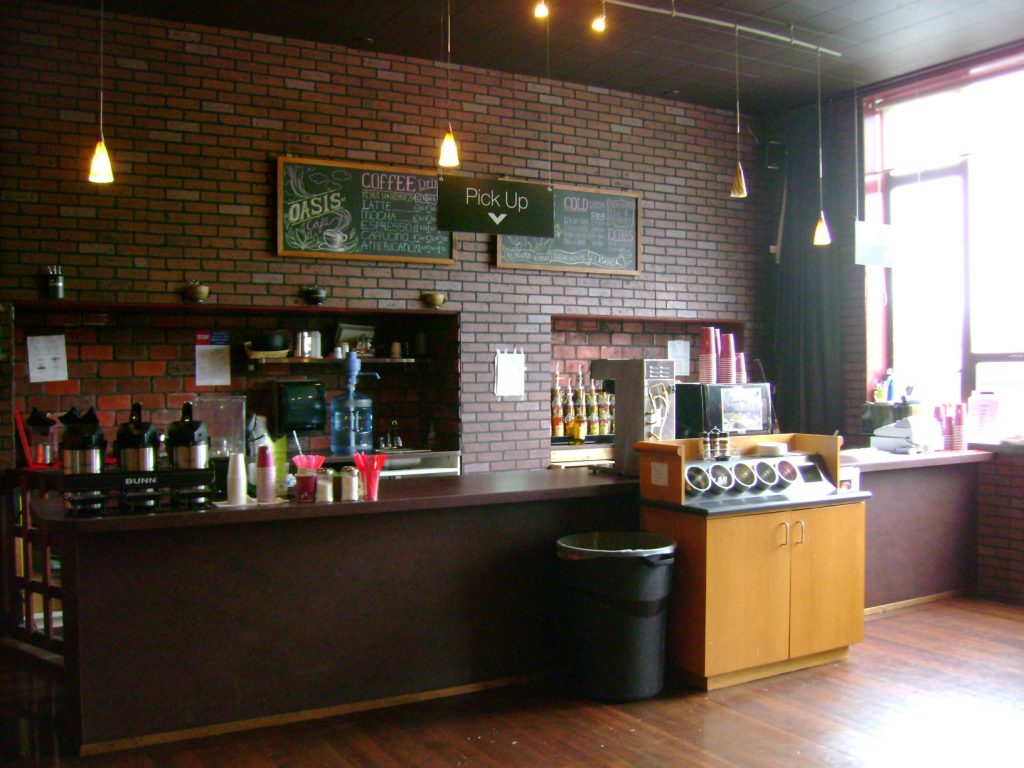
“I thought, wow, this would be a really neat opportunity to partner together — the church and World Relief — and provide some practical training [to refugees].”
Within a year, Holly helped Calvary Chapel South launch a barista training program for newly arrived refugees and immigrants. Since then, Holly has also launched the training program at Brooklake Church in Federal Way, where she now works as the Outreach Director.
Both churches partner with World Relief Western Washington’s Employment Services to identify and refer participants to the programs. So far, the two churches have trained more than 25 refugees.
More Than a Training Program
Much like the Cambodian cafe that first inspired Holly, the barista program in Washington is designed to meet each participant’s individual needs. Focusing on only a few students at a time, training sessions are tailored based on the trainee’s prior work experience and English level.
Participants are enrolled in a 12-week program that takes place every Sunday while church coffee shops are up and running. Each week, participants focus on learning how to run one aspect of the coffee shop, while also practicing their English and customer service skills.
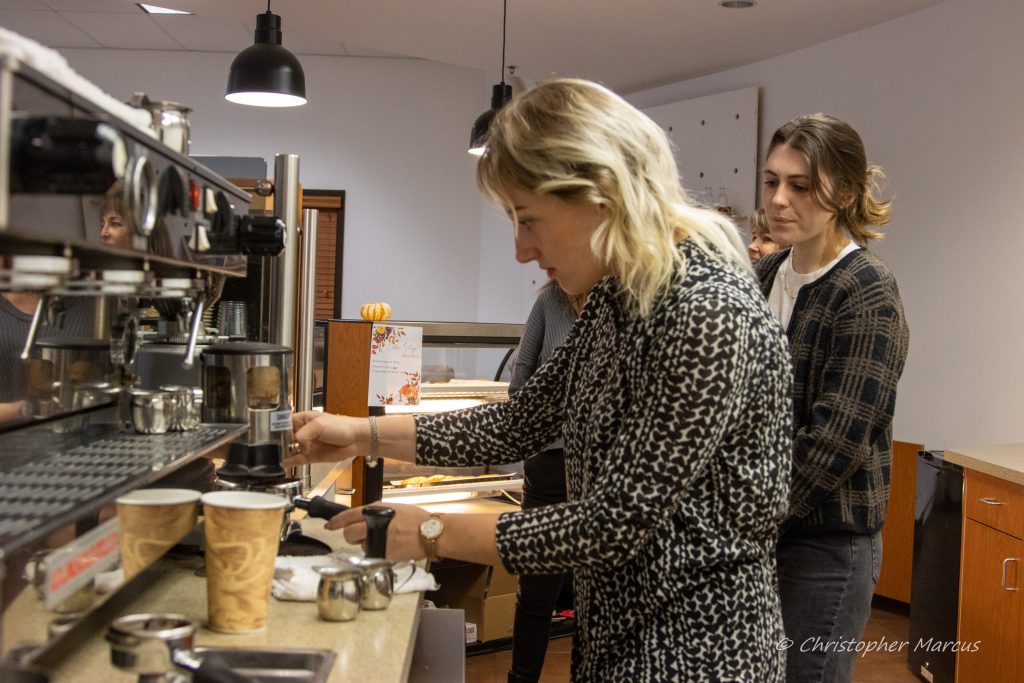
But there’s more to the program than barista skills and English — there’s an opportunity to form friendships. Tutors intentionally leave space for navigating culture and offering encouragement, advice and even prayer when appropriate.
“The churches don’t just help our participants learn new skills,” said Santa Pradhan, Employment Program Manager at World Relief Western Washington. “They also welcome them with open arms and give them a sense of community.”
As tutors help trainees feel like “less of a stranger,” trainees help tutors expand their understanding of refugees and immigrants and clarify misperceptions. “Our participants have been instrumental in helping the church to be better at following God’s call for us to welcome the stranger,” Holly said.
As participants and volunteers become invested in one another’s lives, many form friendships that last long beyond the end of the program.
Careers Beyond Coffee
This was the case for Hawraa. After resettling in the U.S. from Iraq, she joined the barista training program in early 2016. Today, Hawraa remains friends with Holly and the volunteers from Calvary Chapel South’s coffee shop training, and she credits the program with teaching her more than barista skills. She also learned customer service and how to interact with others in a U.S. workplace, lessons that would carry her career beyond the coffee shop.
“[The barista program] was the first thing that I participated in that was close to a job when I first came to the United States. It prepared me for bigger things that I went on to do,” she said.
Hawraa is now working as a case manager with Puget Sound Training Center, helping other refugees, immigrants and under-served populations achieve career success in the U.S.
When asked what advice she would give to U.S. churches hoping to welcome refugees and immigrants, she said, “Please offer them participation in programs and events, help them as much as possible with their English since most are too embarrassed to make mistakes, and just smile! Seeing smiling, welcoming faces was one of the best things when coming to the United States.”
Why the Church?
Like World Relief, Holly believes the church is called to embody the hope of Jesus in the midst of a hurting world. One of the ways churches in the U.S. can do that is by welcoming new immigrants into their communities and seeking to learn from one another.
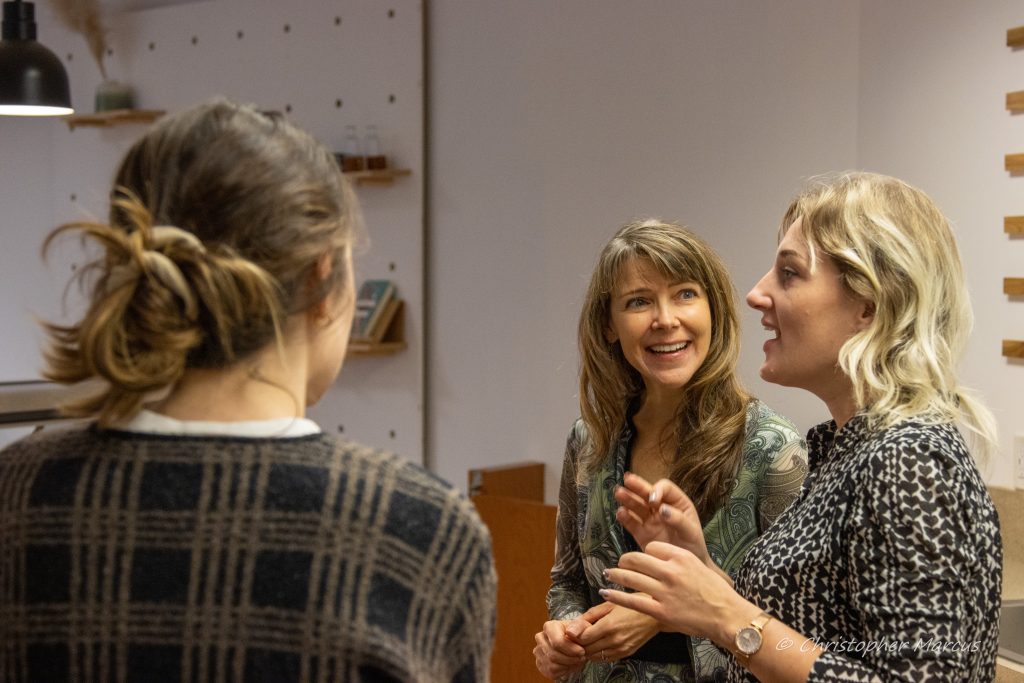
“We see in the establishment of the early church, God’s design… is for people to come together, pour over his Word and to fellowship with one another in a deep and devoted way,” she said. “How amazing when the local church can enfold newcomers into this kind of community.”
For churches not yet connected with refugees and immigrants, Holly suggests first discovering who is already providing services for refugees and immigrants, including established immigrant communities. Work together to determine how best to be a supportive partner in the resettlement process.
She also recommends taking note of what your church already has that might help in welcoming someone who has recently arrived in the U.S.
While not every church has a full coffee shop, others may have shuttles available to provide transportation to local thrift stores or markets, or business owners from local churches might host a small job fair. English tutoring, access to computers, job search assistance and fun after-school activities can also make a big impact.
But most importantly, Holly emphasizes the value of friendship as we seek to create more welcoming communities where everyone can thrive.
“The church can first and foremost be a friend,” she said. “Rest from ‘doing’ and leave room for just being together, sharing life and learning from one another. Be hospitable and accept hospitality. This is a ministry in itself.”
Want to be a part of creating lasting change for refugees, immigrants and people experiencing vulnerability around the world? Learn how we’re moving forward together.
If your church is ready to dive deeper into how best to love and welcome your refugee and immigrant neighbors, check out The Workshop, World Relief’s e-learning platform. Use code CHURCH25 for 25% off through January 31, 2023.

Kelly Hill serves as a Content Writer at World Relief and previously served as Volunteer Services Manager at World Relief Triad in North Carolina. With a background in International and Intercultural Communication, she is passionate about the power of story to connect people of diverse experiences.
Breaking Down Barriers: How Autism Has Helped Me Serve My Refugee Neighbors
I’ve lived in the same place my whole life. I have never had to leave everything I know out of fear for my life. In many ways, my life and the lives of my refugee and immigrant neighbors couldn’t be more different.
Yet, I do know what it feels like to be on the outside looking in. For as long as I can remember, I have felt somewhat out of place, like I wasn’t meant for this world in some way. I didn’t know the reason for this — it was just the way I was.
It wasn’t until I was 20 years old that I finally realized why I felt so out of place. That’s when I first heard, “You have autism.”
On one hand, I was relieved. I finally had an answer for why I felt like a person who was told to play the game without being given the rules. On the other hand, it expanded my understanding of just how much our society is not built to accommodate people like me.
Fighting the battles that come along with having autism has been difficult, but it’s also afforded me a unique love for learning from those whom society often relegates to the margins. Over the years, this has meant seeking to be mentored by African American pastors, working with the imprisoned and searching out opportunities to see how my Christian faith intersects with building up my local community.
In college, I was introduced to this type of ministry when I had the opportunity to work with refugees as an ESL tutor. For me, this felt like a natural extension of my passion for reflecting God’s love to those on the margins. Years later, through God’s providence, I was given the opportunity to continue serving refugees when I joined the World Relief Upstate SC team right here in my own community in South Carolina.
Now, in my role as the Upstate SC Mobilization and Development Coordinator (and formerly as the Church and Volunteer Engagement Coordinator), my life is full of paradoxes. I am a person who struggles with social interactions, but I must frequently speak to volunteers, churches and other community partners about how we are called to love and serve refugees. Accepting unpredictability and ambiguity does not come naturally to me, yet refugee resettlement is anything but predictable.
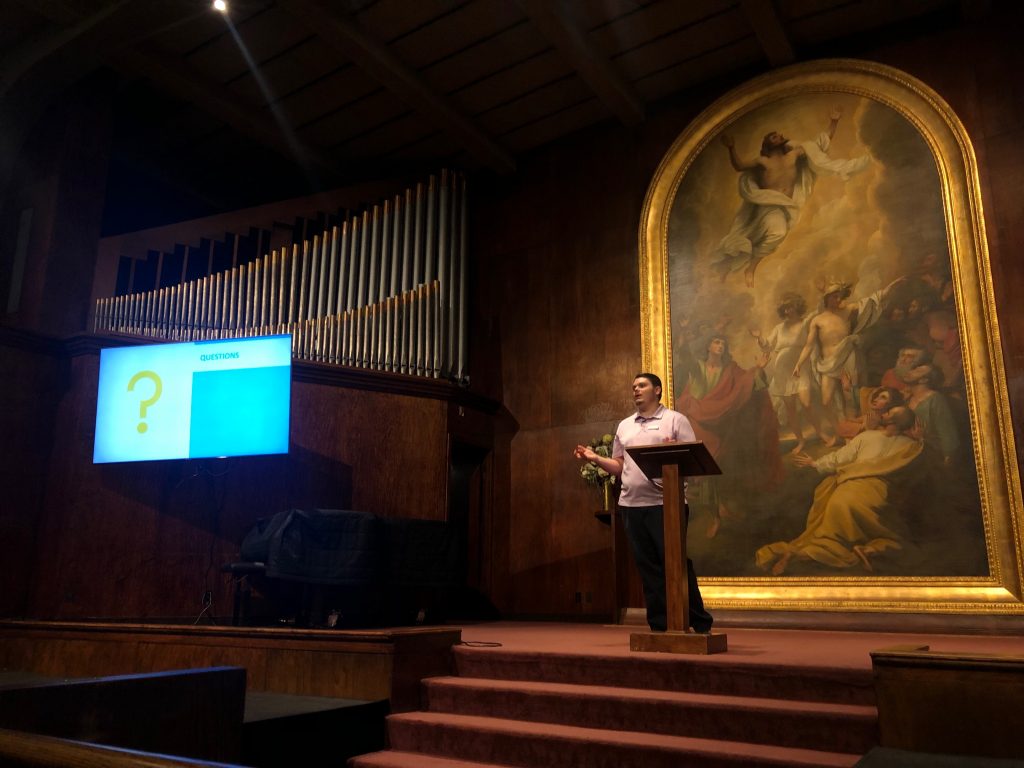
While these are paradoxes, they show that God uses every single person to advance his cause and that his kingdom breaks down barriers of gender, race, ethnicity and even disability. In fact, because of my disability, I believe it can sometimes be easier for me to put myself in the shoes of refugees and immigrants who are feeling out of place and lost in a culture and society that wasn’t built for them.
For many refugees and immigrants, navigating new communities, grocery stores, school systems, workplaces and more can feel like trying to put a puzzle together without knowing what the finished product should look like. That’s a feeling I can certainly relate to.
My experience with autism spectrum disorder also gives me compassion for the fear and uncertainty that many of our refugee and immigrant neighbors face in their daily lives. I understand what it means to cling to Matthew 6:34, which says “do not worry about tomorrow, because tomorrow will worry about itself.”
While I do not discount the many challenges people like me face or the differences between my experience and that of refugees, I do believe wholeheartedly that the good news of God transforms even the most difficult of situations for our good and his glory.
At World Relief, I’ve found a place where I can work within my strengths and limitations as someone who has autism and experience God’s transformation in my life and in the lives of those around me.
World Relief is committed to building welcoming communities that value and accept refugees and immigrants. That same culture has helped me feel valued and accepted. Our Office Director, Brandon Baughn, has been an especially faithful example of this culture of welcome, giving me the blessing of trust in my work and in my perspective not only as someone with autism, but more importantly, as a follower of Christ who is passionate about serving “the least of these.”
This trust has allowed me to run headlong into serving churches and volunteers so that they, too, can create communities of welcome. I am able to do my work knowing that World Relief welcomes my unique perspective and does not see my disability as a hindrance.
Together, we are moving towards creating spaces where people of all nations, backgrounds and abilities can embrace their God-given purpose and live out their full potential.
At World Relief, we are grateful for faithful staff like Austin. We rely on the time, talents and treasure of people like you to continue moving forward together. You can join us by giving today or by checking out our careers page to see if working at World Relief is a good fit for you.
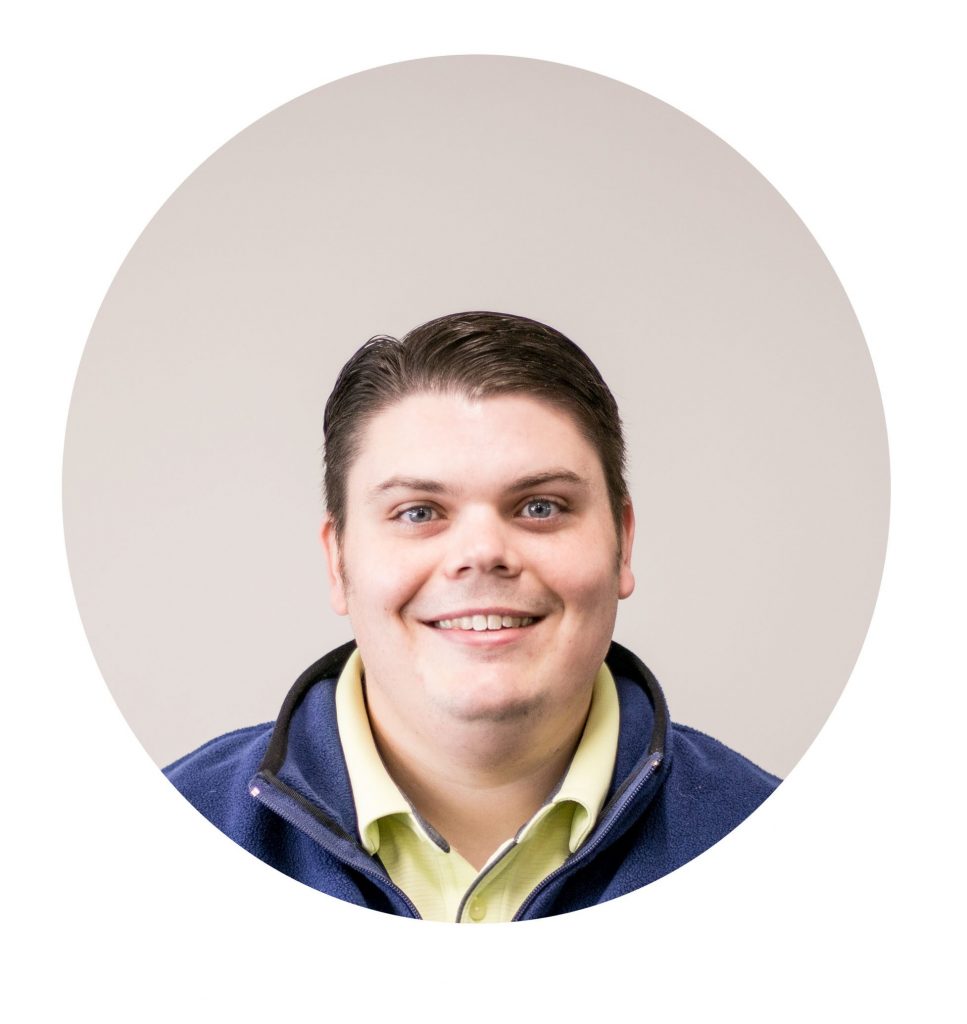
Austin Donahoo is the Mobilization Development Coordinator at World Relief Upstate SC, where he previously served as the Church and Volunteer Engagement Coordinator. He loves integrating his passions for Christian ministry and theology with community engagement, believing that the call of the gospel is to be shown in both word and deed. At World Relief, he works to do this by equipping churches and volunteers to love their refugee and immigrant neighbors.
Disability-Inclusive Development: How the Church Can Answer the Call
“So also we are many persons. But in Christ we are one body. And each part of the body belongs to all the other parts. We all have gifts. They differ according to the grace God has given to each of us.” — Romans 12:5-6
Saying Yes to Wisdom
When the Kanombo Church of Central Africa Presbyterian in Malawi made a call for volunteer Sunday school teachers, they did not consider Wisdom Shaba as a viable candidate. Wisdom, after all, was blind. Having suffered from a skin disease that affected his eyes, he lost his sight at the age of five.
But God had bigger plans for Wisdom.
His church, which is a member of one of World Relief’s church networks in Northern Malawi, had agreed to participate in a disability inclusion training conducted by World Relief.
Wisdom attended the training along with other members of the congregation, and it was there that he learned of the need for Sunday school teachers and volunteered himself.
“Despite my disability,” Wisdom said, “I always tell people in my community not to ignore me in other things they feel I can get involved in. I went to school. I speak good English. So, why not involve me?”
Made in the Image of God
At World Relief, we believe every person is created in the image of God and has inherent value — including those with disabilities. And yet, in communities across the globe, people like Wisdom are often pushed to the edges of society and face significant barriers to participating in their communities and accessing critical care.
This lack of inclusion can increase their risk of poverty, violence, social and familial stressors, illness and even death. As a result, people with disabilities represent some of the most marginalized, making up 20% of the world’s poorest in developing countries.
While the statistic is staggering, we believe the church has a role to play in closing the gap on disability inclusion. We believe the church is called to be a place where people with disabilities are not only served, but also valued and included in all programmatic and worship activities.
After all, Jesus himself spent much of his time on earth serving and fellowshipping with people with disabilities. He calls his church to do the same.
“When you give a banquet,” Jesus said in Luke 14, “ invite the crippled, the lame, the blind.”
That’s why, in 2019, World Relief piloted disability-inclusive programming through our Church Empowerment Zone initiative in Malawi.
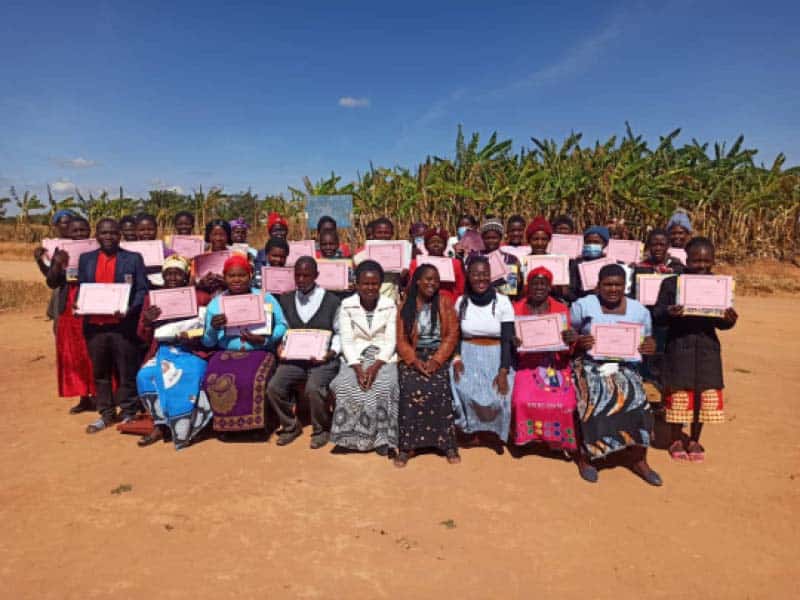
What is Disability-Inclusive Development?
Disability-inclusive development ensures that people with disabilities are able to access and participate in development activities in the same way as persons without disabilities. It is not a separate program, rather World Relief staff, local church leaders and community members receive training that:
- helps church leaders understand the prevalence and impact of disability in their communities
- ensures active involvement of people with disabilities in all phases of a project
- assists church and community leaders in identifying and removing physical, communication, policy and attitudinal barriers to participation in program activities
The fruit of this work has not only brought dignity and restoration to people with disabilities but has also empowered members of the body of Christ to better serve people with disabilities. Through the pilot program alone, more than 400 people with disabilities were reached by the church network.
“World Relief came and opened our eyes to see the most vulnerable among us — people with disabilities…” said one church leader. “We have whole-heartedly embraced [Jesus’] call to care for people with disabilities in our communities.”
An Inclusive World
After Wisdom volunteered to teach Sunday school, the leaders of his church organized a practice session where Wisdom taught a lesson to two children. He used a small book to teach on the topic “guiding children to the Savior.”
Everyone was amazed at the skill with which he explained spiritual truths to the children.
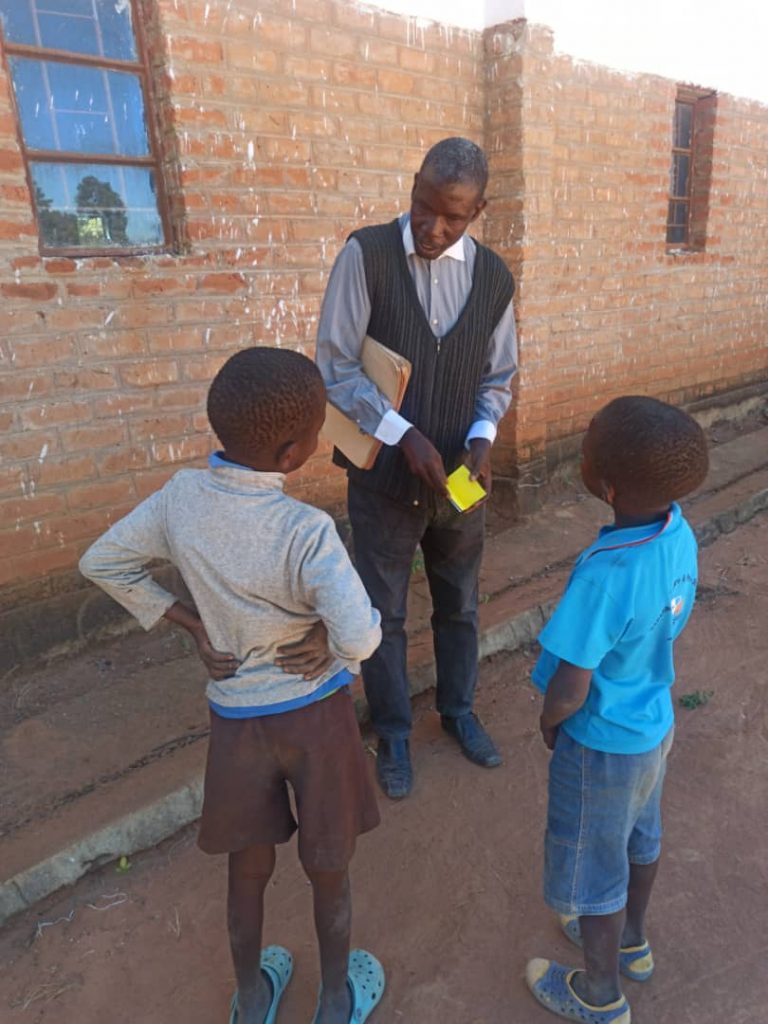
“God creates ways for me to do things that people don’t expect me to do because I am blind.” Wisdom said. “People don’t involve me in community gatherings because they always judge that I cannot do so. But I thank God because He blessed me with this disability I have. I strongly believe that this disability is not a curse.”
Reverend Mphatso Chidothe, who helped facilitate the disability inclusion training at Wisdom’s church shared that he has “realized that disability is not inability.”
“I am pleased with Wisdom for his time management, active participation and his performance throughout the training. I look forward to visiting him at his church one day,” Reverend Chidothe said.
By working through the local church, we are creating communities where people with disabilities are included as active and valuable participants in their communities. Church members come to learn that people with disabilities are not just there to be served, but also have God-given gifts and abilities that they can bring to serving others as well.
Since the programming was piloted in Malawi, World Relief has expanded disability-inclusive programming to church networks in Burundi and Rwanda, and now plans to train churches in six more countries where World Relief works as funds become available.
By removing barriers to participation, we are making way for entire communities to be transformed as the gifts of each and every person are recognized and given space to shine for the glory of God.
Together, we are going further to reach more people through more churches than ever before. Will you join us?
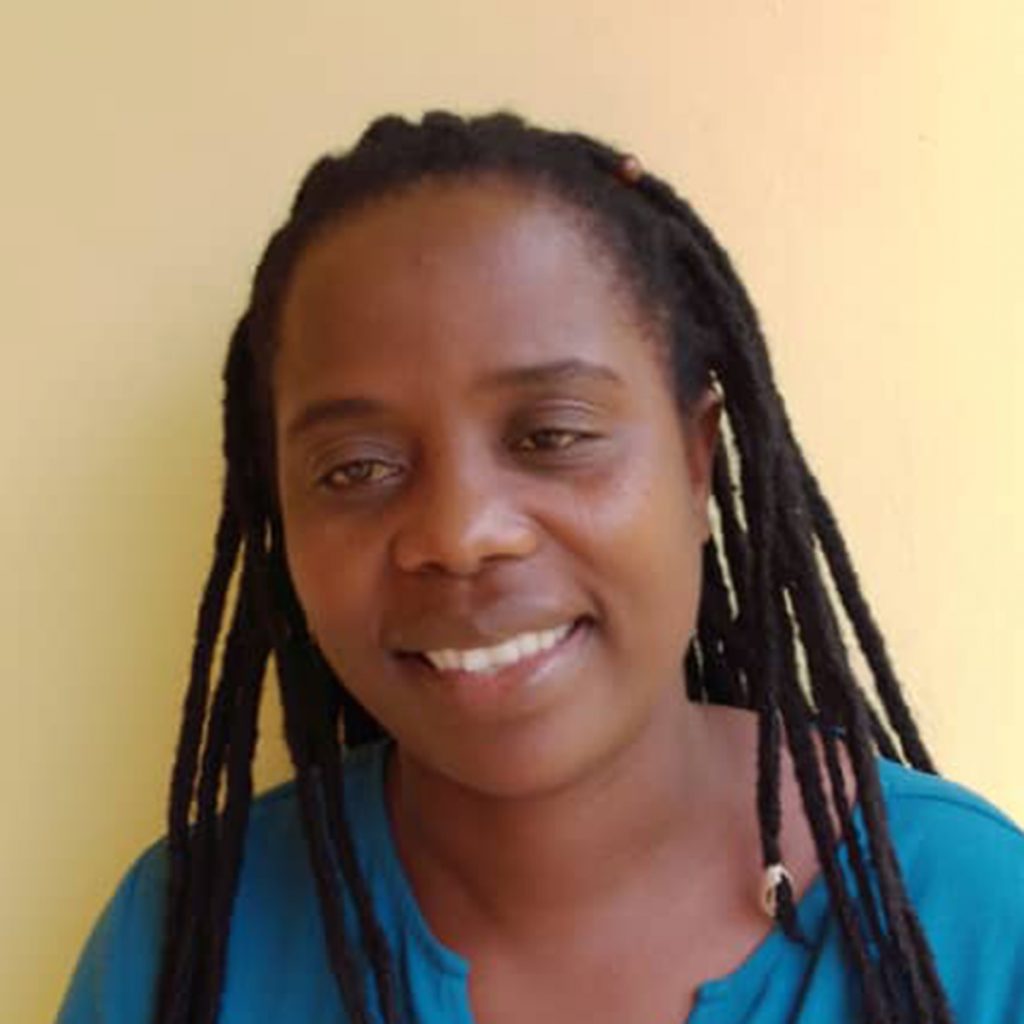
Muhlabase Ziba joined World Relief in August 2019. She works as the Families for Life and Child Development Field Coordinator in Malawi’s Mzimba District where she develops programs, coordinates with stakeholders, conducts trainings and collects stories of impact. She is passionate about helping children build self esteem, strengthening couple relationships and providing neglected children with the psychosocial support they need. In her spare time she enjoys spending time with the children in her own life and watching the Wildlife National Geographic channel.

Rachel Clair is a Content Manager at World Relief. Alongside an amazing team of marketing colleagues, she manages the curation and creation of written and multi-media content for World Relief’s global platforms. With more than 10 years of experience creating content for churches and non-profits, she is passionate about developing content that challenges both individuals and communities to lean into all of whom God created them to be. She holds a BFA from Stephens College and is currently participating in a spiritual formation cohort through the Transforming Center in Wheaton, IL.
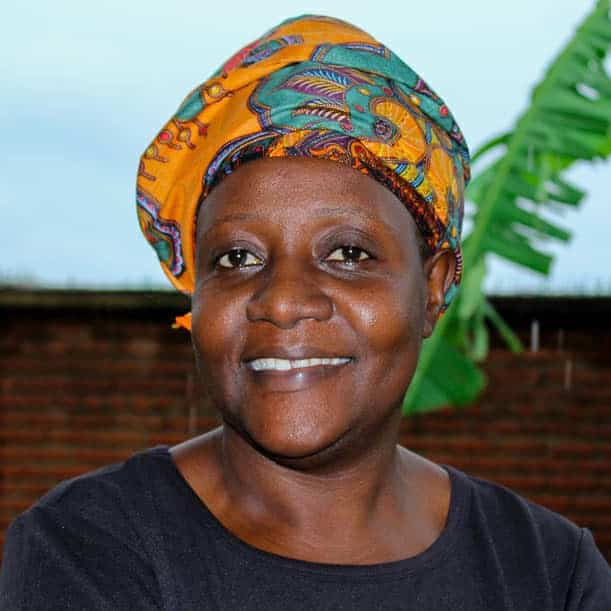
Veronica Kaitano serves as the Gender Equality Social Inclusion Technical Advisor with the World Relief’s Programs Resources Team. Through her work, Veronica supports World Relief’s country offices in ensuring the integration of a gender and social inclusion approach within programming and acts as the global technical lead for supporting implementation and continued growth of World Relief’s couple strengthening model Families for Life, with a specific emphasis on disability inclusion.
Worth the Wait: A Story of Faith, Perseverance and Love, Despite the Odds
For seven years, Congolese refugees (and newlyweds!), Mbimbi and Goreth, didn’t know if they would ever see each other again. Separated by continents, Mbimbi was stuck in Burundi while Goreth resettled and began her new life in America. In spite of the long wait, the two of them never lost hope, their love growing by the day.
“No one can do what Goreth did,” Mbimbi said about his wife’s commitment not to remarry. Instead, Goreth chose to hold onto hope, believing God was faithful and would bring Mbimbi back to her in America.
Where It All Began
In 2008, Goreth was a wife and mother living in Goma, a city in Democratic Republic of Congo (DRC). Her day began like any other day – she woke up, brushed her teeth, made some tea and headed to the market to sell clothes at her stand. It became a day she would never forget when “the fighting broke out.” She recalls, “My daughters, [Christine and Valentine], and I started running, and we found a way to get past Goma to Burundi. That’s when I started my life as a refugee. My [first] husband died in the fights.”
Goreth and her daughters ended up in a Burundian town filled with other refugees. Upon arrival she shares, “I felt relief because of sleeping in a house and churches help us and Christians help us.”
While Goreth and her daughters were refugees in Burundi, Mbimbi was working as an auto mechanic in Baraka, a city south of Goma in DRC.
In 2014, an armed civilian group put pressure on him to “join them for the fight and to be a soldier.” These groups were once formed to defend the Congolese against rebel armies. But tragically, they have created more chaos and violence than protection for the Congolese peoples.
So, when Mbimbi refused, they threatened him. With a target on his back, he reflects, “That was the night my uncle called me and said, ‘They are looking for you.’” That same day, “I told fishermen what happened and ask if they can help me to another place. They hide me in the boat and carry me down river.”
From there, Mbimbi went to Boku, where “they [gave him a] motorcycle to go to Boda.” From Boda, he traveled to Burundi where he ended up in the same town as Goreth.
Having arrived in the same town six years apart, Goreth and Mbimbi met, by chance, while filling out paperwork to earn refugee status. Goreth was farther along in the process while Mbimbi was just beginning his paperwork. Despite crossing paths at different stages in their journey to flee DR Congo, they formed a connection “and began a relationship.” Within a year, they were married.
Oceans Apart
Even though they were living in a safer town than the cities they had fled, Goreth and Mbimbi couldn’t escape the violence. In 2015, their Burundian town experienced fighting; so, when Goreth was given the opportunity to go to America, she agreed. The catch? Mbimbi wouldn’t be able to join her and her daughters. It was a bag of mixed feelings for Goreth.
“To be a refugee is not an easy thing,” she says. “It’s just a thing you have to do to pray to God. God helped me because I became strong and fight for the kids to grow up…in a safer place.”
Leaving behind her new husband, Goreth and her daughters traveled to America not knowing when and if they would ever be reunited with Mbimbi. When they arrived in the U.S., their new lives began right away.
Goreth remembers they were greeted by World Relief staff and volunteers. “[They] had already found an apartment for us,” she recalls.
Staff and volunteers came alongside Goreth and her kids, taking them to doctors appointments and helping Goreth find a job in manufacturing, packing hospital-grade linens. Goreth expresses sincere gratitude for all of World Relief’s help, especially in “the first three to six months.”
Even though Goreth felt “sad sometimes” she shared with deep conviction that she “still waited and prayed to God” for Mbimbi.
At Last, Together Again
Both her and Mbimbi’s prayers were answered when he was resettled to America in July 2022. Finally reunited with his wife, Mbimbi is taking a World Relief “Zoom job class and language class.”
He takes comfort in knowing that once his job and language classes are complete, he can still count on World Relief.
“It’s not like they abandon you,” he said. “If you still need something, they are there to help.”
Mbimbi and Goreth are currently renting a one-bedroom apartment. Now able to dream together, the couple says, “for the future, we are praying to God that we can get our own house.”
Knowing that God has provided for them before, they are trusting, through prayer and perseverance, that anything is possible!
As crises converge, and global conflict forces more people to flee their homes, it takes all of us, to move forward together, to build peace and lasting change. When you give today, you help us build peace in places like DR Congo while also welcoming those like Goreth and Mbimbi who have been forced to flee to the United States.
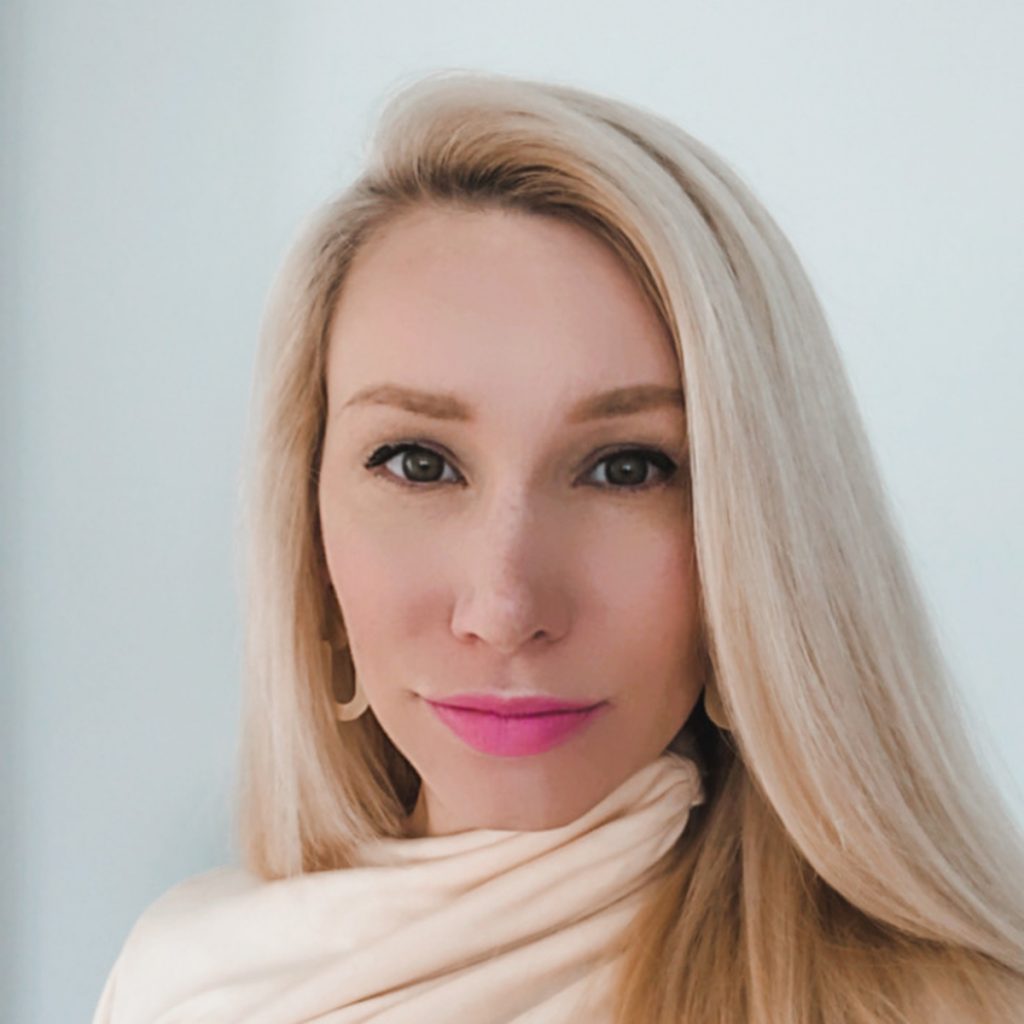
Michelle Visk is a freelance writer passionate about sharing compelling stories of individuals impacted by nonprofits throughout the world. In addition to writing for nonprofits, she recently launched her own interior design e-consulting business, geared at making interior design more accessible to the middle class so everyone can create a home they love. When she’s not writing or doing e-consults, she enjoys spending the majority of her time with her husband and pouring into her two feisty little girls (ages 3.5 and 5) as a stay-at-home-mom. Before becoming a stay-at-home mom, Michelle worked in ministry for 10 years, serving as a Communications Director for a multi-site church. She holds a BS from Butler University.
10 Reasons to Give Thanks Around the World
As followers of Jesus, we are called to be people of hope — to “know the hope to which [Jesus] has called [us]” (Eph. 1:18) and to “hold unswervingly” to it (Heb. 10:23). How, then, can we cultivate and embody hope even in the midst of the world’s suffering?
According to some experts, the answer is simple: gratitude.
Gratitude is one of the strongest predictors of hopefulness, and it’s scriptural. Giving thanks in all circumstances helps draw our focus back to Jesus and his past, present and future faithfulness — not ignoring suffering, but seeing it in light of a God who has promised to transform ashes to beauty and wipe away every tear.
Today, we invite you to join our staff around the world in giving thanks for how God is still working to transform lives and communities through the local church. Will you cultivate hope with us?
1. Burundi
“We are thankful that, with God’s help, we have equipped and mobilized 60 local churches in Nyarusange district to serve their communities, including providing support to 30 people considered to be most vulnerable because they are living with disabilities, orphaned or widowed.
“Churches also distributed 30 chickens to 144 households. The chickens will be able to multiply and provide eggs for eating and selling. Our church network in Nyarusange was even ranked at the provincial level as the number three most active and committed network caring for the most vulnerable!” — Cesalie Nicimpaye, World Relief Burundi Country Director
2. Cambodia
“We are grateful for 53 Kids’ Clubs with over 1,000 children graduating after finishing our 41-week curriculum focused on developing healthy relationships with God, others and self. We appreciate the 100+ volunteers and church and community leaders who supported this. Moreover, we keep praising God for helping our Savings for Life program members grow their savings and improve their financial well-being.” — Romroth Chuon, World Relief Cambodia Program Operations Director
3. DR Congo
“I am most grateful for the field office staff God has called to be part of World Relief DRC. They are beyond dedicated to serving the people of DR Congo and creating change in their country. With grit and prayer, they have pushed through seemingly insurmountable challenges.
“This year, we reached nearly 165,000 individuals with valuable food security resources, we started a new Families for Life program to rebuild marriage relationships through the local church, and we grew our new Church Empowerment Zone in Ituri Province despite security challenges. Numbers alone do not do the DRC program justice — it is the people, the team, who are the measure of success.” — Amanda Patterson, Program Officer, Humanitarian and Disaster Response Unit in DR Congo and South Sudan
4. Haiti
“We are grateful to God for the 440 new youth who joined the second year of the agri-business project in the southeast region of Haiti. We are also grateful to have 105 direct beneficiaries of our housing project, implemented in partnership with Habitat for Humanity in response to those affected by the earthquake on August 14, 2021 in Les Cayes.” — Pascal Bimenyimana, World Relief Haiti Country Director
5. Kenya
“We are grateful that God has blessed Kenya to partner with 489 churches engaging 5,305 volunteers to share on reproductive and sexual-health related messages to 157,271 families in three counties.” — Nancy Owola, World Relief Kenya Monitoring and Evaluation Manager
6. Malawi
“I thank God for what we have managed to accomplish this year, especially through our Families for Life program, which helps strengthen marriages and give families the tools they need to thrive. This year, we have transformed 19,424 couples in our five Church Empowerment Zones! We are celebrating and thanking God for these transformations because we believe that if we transform a couple — if we transform a family — we are going to transform a local church, and the local church is going to transform the community. If the community is transformed, then we are going to transform Malawi.” — Jane Lumanga, Former World Relief Malawi Director of Programs
7. Rwanda
“Through our Savings for Life program, we are grateful to have reached 9,479 community members through 390 new saving groups — 14 of which are digital — with financial inclusion resources and training in key economic development modules such as Financial Literacy and Business Development, Smart Spending and Deciding Together. This is impacting close to 40,000 vulnerable people across the program area — thank you, God!” – Michael Ntambara, World Relief Rwanda Impact and Quality Director
8. South Sudan
“In South Sudan, we’re thankful to God for the work of our SCOPE Health Promoters and local church partners. Together, we have assisted 10,568 children under five with immunizations and treatments for malaria, diarrhea and pneumonia. We have also helped refer 3,213 mothers to health facilities for maternal services. But my favorite is the number of babies delivered with support from our health promoters — 601 new babies! We pray that by God’s grace, these babies will grow up to have a good life in South Sudan.” — Hillary Muni, World Relief South Sudan Area Coordinator
9. Sudan
“We are thankful to God for uniquely granting World Relief Sudan with wisdom to provide solutions for water shortages in the Jabel Marra region through the construction of six check dams. This year, the dams have harnessed enough water for domestic use in over 35,000 households, as well as for fruit farming.
“We are also thankful that God has enabled us to distribute 58,355 metric tons of food to 430,000 Internally Displaced People (IDP) and returnees across three Sudanese states in Sudan, and provide primary health care services to 459,748 IDPs, returnees and host community members in the Darfur region.” — Stephen Gatimu, World Relief Sudan Program Director
10. U.S.
“We are grateful that God has raised up 873 churches and 8,430 volunteers this year to help us welcome refugees and immigrants across the U.S. — whether Afghans escaping the Taliban, Ukrainians fleeing war or individuals and families from around the world looking for safety and an opportunity to thrive. We are especially thankful that 1,600 individuals have been reunited with family members, many after enduring long separations from spouses, children, parents and siblings.” — Mandy Barb, Senior Director of U.S. Programs
Join us in giving more people more reasons to give thanks this holiday season.
Through the Flood: How Conflict and Climate Change are Converging in South Sudan
Serving the most vulnerable often means accessing the furthest, hardest-to-reach places in order to meet those in greatest need. For Daniel Erwaga, it meant riding through waist-deep flood waters on a 4×4 all terrain vehicle to assist farmers whose fields had been flooded in South Sudan.
Over the last three years, record amounts of rainfall have led to increased flooding in South Sudan, affecting more than 835,000 people.
According to the United Nations High Commission for Refugees:
Climate change is driving more frequent and intense weather and climate extremes such as cyclones, floods and droughts, negatively impacting agricultural production, food and water resources, and people’s livelihoods. These effects can lead to conflict and humanitarian disasters and are increasingly contributing to displacement in different regions of the world.
Since gaining independence in 2011, South Sudan has struggled with ongoing civil conflict. This political instability has contributed to a food security crisis that today, is being aggravated all the more by climate instability.
Today, former World Relief staff, Daniel Erwaga, joins us from Juba to talk about how conflict and climate change are converging in South Sudan to increase the vulnerability of those already struggling with food insecurity.
Daniel shares his experience as a professional agriculturalist and South Sudanese citizen. Though the events discussed are occurring in South Sudan, we all have a role to play — as crises converge, the only way to move forward is together.
Read on to learn more and join us.
WR: Hi Daniel. Thanks for being with us today.
Daniel: Thank you. I’m so much pleased to have this interview.
WR: Could you start by telling us about the type of work you did for World Relief South Sudan?
Daniel: I started working with World Relief in 2017 until 2022 in March when my contract ended. I worked on emergency projects in partnership with OFDA and FAO. My role as an agriculturalist was to help people in Fangak and Koch communities understand the value of farming as a vocation. People here are pastoralists. They don’t know much about farming. I teach them everything from how to successfully grow crops all the way to running a business and selling their crops in the market.
WR: What prompted you to pursue a career as an agriculturalist?
Daniel: Of course. I’ve chosen this career based on my mentor – my father. He was also an agriculturalist. Back home, he had a kitchen garden and that kitchen garden impressed me. I told him I wanted to become an agriculturalist the same as him and he said, “No problem. You can do that.”
It is both love and a desire to have knowledge that pushed me to go into agriculture. When I was young, I thought to myself, “Of course, food is being produced by an agriculturalist. Why don’t you go and become a professional farmer because day and night, people are eating?” If I can go into agriculture, I can have a broader understanding of farming to help secure the nation, which is struggling with food insecurity.
WR: Can you share more about why this work is so important for communities in South Sudan?
Daniel: Yes. Currently, more than 8 million people are experiencing hunger in South Sudan. My philosophy is that I am helping them help themselves. Through our efforts, farmers are able to do for themselves because of the training and agronomic practices they learn. Of course, when there is conflict, people can’t cultivate the land, and often they move to another location. This mass migration into other territories can lead to more conflict and food shortages. And then there is the flood issue.
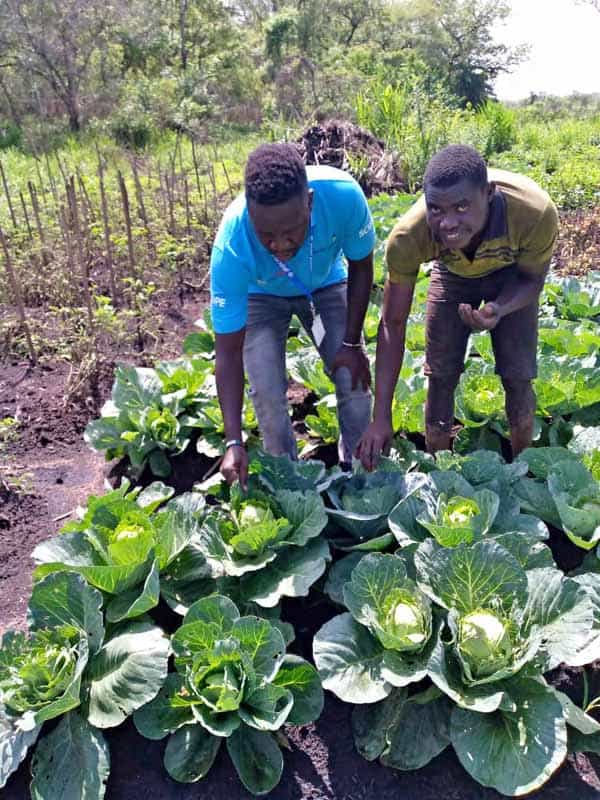
WR: How are you seeing the effects of climate change in the communities where you have worked?
Daniel: Climate change isn’t just in South Sudan, it’s everywhere. When there’s too much rain, it destroys crops from the gardens. I know you guys may not see it in the U.S., but here, we can also see the impact of climate change where animals die day and night because they don’t have anywhere to graze and they don’t have anywhere to stand. That’s part of it, but it also affects crops. You cannot harvest, of course, when your garden is flooded with water.
WR: In your experience, how have you seen conflict and climate change as being connected?
Daniel: Yes. In my own experience, climate change has nothing to do with conflict, but it also has something to do with conflict. Most of the conflict that happens in South Sudan is because of the power struggle. But on the other hand, climate change has contributed to the effects of the conflict.
Let’s take an example like Jonglei State. They’re pastoralists. When the floods came, they moved with their animals to the Equatorial states where the Equatorian people are farmers. When the people from Jonglei come with a large number of herds and cattle, they almost always bring conflict to the new community.
The pastoralists and farmers don’t communicate or collaborate with one another. So, when the pastoralists graze their animal in the farmer’s field, the animal will eat the crops of the farmer, and that’s where the conflict will come in. The flooding, which is caused as a result of climate change, also contributes to the conflict.
WR: There’s a photo of you that has become very popular at Word Relief. Can you tell us what was going on in that picture?
Daniel: You saw me on the convoy? Yes. It was last year in September. Some farmers had been calling me to go and check their gardens [which had been flooded]. I was riding in a truck, but I got stuck. Moving forward was a bit challenging. The place was flooded, so I could not move. I had to stop and assess how shallow the water was because the flood had covered the road, so there was nothing I could do. I could not go back and then I could not go forward.
That’s why I took the initiative of using the quad bike because the car could not access the road. I wanted to see how the garden had been flooded so I could give a report to see how those communities can be helped.
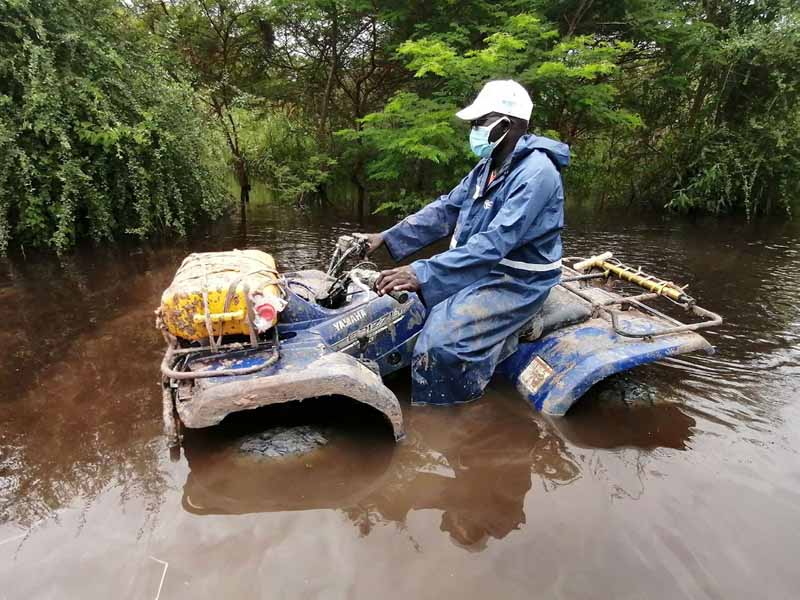
WR: If somebody’s garden is flooded, what kind of help is available to them through World Relief?
Daniel: First, you want to provide basic necessities like offering food because if the garden has been flooded, the person doesn’t expect to yield out of [a flooded garden]. You need to offer help. Then, if the flooding is not so much, you can dig a dyke, which can control the flood from entering into the garden. Those are the things I’ve been helping the farmers to do.
WR: Does South Sudan usually have a rainy season and a dry season, and has that changed?
Daniel: Yes. We have two seasons here, rain season and then dry season. As I’m speaking now, people are complaining because people are sleeping over the water. As a result, there is mass migration. People are moving out to higher elevated ground because of the flood.* Currently, we are now in the rainy season.
WR: What challenges does it create when so many people have to move to a new place because of flooding?
Daniel: There are a lot of challenges, one of which is shelter because when you migrate to a new location, you may find it hard for you to find shelter. Finding a place to sleep is a problem. Also toilets. A lot of disease can come when people don’t have a place to use the toilet. Also, as I said, there is even community conflict as a result of climate change and migration. People from Jonglei State are also migrating to Equatorian states where the flooding is less. They’re coming with their animals, and then the animals are eating another farmer’s crops, so there is conflict when this happens.
WR: At World Relief, we’ve been talking a lot about COVID, conflict and climate change. What do you think the Christian community can do to help with these crises?
Daniel: Christian community can play a big role in addressing crises like COVID-19. First, they can establish psychosocial support structures in the community to help people who are traumatized, who are affected with COVID-19. We can also build on that by procuring face masks and creating awareness.
Now, when it comes to conflict, the Christian community can promote peace and reconciliation and dialogue forums to address the issue of conflict. Christian community can also provide training in peace-making methodology to address the issue of conflict. These are things World Relief does well in engaging church leaders in the process.
The Christian community can respond differently than other individuals or governing bodies because the church leader is listened to and is trusted by members of the community.
WR: What do you want the global community to know about South Sudan?
Daniel: Of course, most of the global community doesn’t know about South Sudan. South Sudan is the world’s newest nation, gaining independence on July 9th of 2011.
Since gaining independence, conflict has renewed in both 2013 and 2016, and the country has suffered severe flooding and drought. Most of the communities are suffering. As I’m speaking, they need much support to build their livelihood and then to recover from the shock of what they’re going through. You can convey our message to the global community so that they know there’s a country, which is so new and these people are suffering. They’re more vulnerable because communities are highly prone to climate-related impacts and a loss of livelihood because of the flooding.
WR: What would you say is your biggest prayer right now for South Sudan?
Daniel: My biggest prayer for South Sudan is for our country’s leadership so that whatever they’re doing, they are first thinking of the people who are suffering. My biggest prayer for the leaders is that they have a heart of forgiving one another because without peace, we cannot do anything. I do pray for that day and night.
WR: Absolutely. We’ll be praying for that too. Similarly, what do you hope for South Sudan?
Daniel: Personally, I hope for the best, a brighter future for South Sudan. In the future, our country is going to be more stabilized and is going to be a peaceful country. Of course, with support from the global community, I know things will improve well. I have hope for a better future for South Sudanese.
In the face of unprecedented challenges, the only way forward is together. Give today and help us reach more people, in more communities, with more resources than we ever dreamed possible.
*South Sudan is home to the Sudd, the world’s largest wetland covering more than 35,000 square miles. While the Sudd is prone to annual flooding, increased rains have affected the length and intensity of the floods. What’s more, the Nile river feeds into the Sudd from Uganda. A prolonged rainy season in Uganda increases the water levels of the Nile, which can lead to more flooding in South Sudan.

Rachel Clair is a Content Manager at World Relief. Alongside an amazing team of marketing colleagues, she manages the curation and creation of written and multi-media content for World Relief’s global platforms. With more than 10 years of experience creating content for churches and non-profits, she is passionate about developing content that challenges both individuals and communities to lean into all of whom God created them to be. She holds a BFA from Stephens College and is currently participating in a spiritual formation cohort through the Transforming Center in Wheaton, IL.
Covid, Conflict and Climate Change: How the Church Can Be Hope Amidst Converging Crises
Two years ago, when COVID-19 was just emerging as a global crisis, many of us in the non-profit sector speculated how the pandemic would shape our world. We threw around the phrase “new normal,” despite not having any idea what that would look like over the next month, let alone in the years to come.
Since then, we’ve watched as three converging crises have dramatically impacted the lives of some of the world’s most vulnerable — COVID, conflict and climate change.
The UN estimates that the number of people living in extreme poverty has increased by 100 million as a direct result of the pandemic — the first time in my lifetime this indicator has risen.
Global conflict is also on the rise, with more coups occurring worldwide than any previous year since 1999. Conflicts in Ukraine and Afghanistan have increased the total number of displaced people from 84 million to more than 100 million.
We are currently facing the worst displacement crisis in recorded history, and all the while, climate change continues to exacerbate these crises and more.
A Convergence of Crisis
At World Relief, we’ve seen firsthand how these three intersecting crises have converged to produce unimaginable suffering in vulnerable communities worldwide.
The war in Ukraine cut off much-needed grain exports, intensifying food shortages in places like Turkana where prolonged drought is killing livestock and putting people at risk of malnutrition and starvation.
In South Sudan, flooding caused by increased rainfall has destroyed land and local infrastructure, leaving farmers and pastoralists to feud over fewer resources.
And in places like Democratic Republic of Congo, the COVID-19 pandemic has further depressed an economy already bending under the weight of instability fueled by ongoing conflicts.
The situation is grim. If you’re feeling weary or overburdened, you are not alone. So many of us are feeling the weight of the world’s suffering on our shoulders, and yet, I believe we can still have hope.
In the midst of these complex crises, I believe God still moves through the church to bring hope and healing to the world. I believe this because I see it every day.
Hope Amidst Converging Crises
I see it in Rwanda where the church remains a source of help, hope and information in the fight against COVID-19. As a result of church-led efforts, we support across East Africa, nearly 100,000 people have been vaccinated.
I see it in Kenya, as communities face life-altering climate crises such as drought and resulting famine. There, the church is at the center, revealing new transformative ways of living and teaching people like Lomita to grow drought-resistant crops to restore their bodies while also providing spiritual food to nurture their souls.
I see it in Democratic Republic of Congo, where, several years ago I visited Rutchuru and listened as community members recounted terrible acts of murder committed by rebel groups just months prior to my arrival.
Today, in that same community, World Relief staff are unifying pastors from different tribes, families and denominations — some of whom were once in open conflict with one another — and facilitating a process of communal healing.
These same churches are now supporting village peace committees that help resolve conflicts in the absence of effective governance structures.
And of course, I see it right here in the U.S., as refugees and immigrants arrive in need of a safe place to call home. Here, the church is revealing time and time again that better days are ahead as they help people rebuild their lives.
Jesus Says Take Heart
In the hours leading up to his death on the cross, Jesus took a walk with his disciples and told them of the hardships they would soon be facing. He said, “I have told you these things, so that in me you may have peace. In this world you will have trouble. But take heart! I have overcome the world.”
World Relief was born to respond to urgent suffering and overwhelming humanitarian needs. Today, we find ourselves once again facing a crisis of historical proportions, and in the midst of it we feel God calling us, again, to take heart! To go further and reach deeper as together, we reach more people in this time of immense need.
Where others might pause in the midst of adversity, our faith in Jesus compels us to keep going, moving toward a ministry that leads to the restoration of others.
The challenges of COVID-19, conflict and climate change are great. But together, I believe we can move forward as the church Jesus intended us to be — not divided by partisanship, but as a body of compassionate believers, united in the Spirit to bring hope and restoration to those in physical and spiritual need around the world.
Join World Relief this season by signing up for our exclusive 4-part podcast series. Leaders from across the globe share how God is creating change through local churches in their communities. In the midst of converging crisis, God still moves through the church, and you’re invited to be a part of it.

Myal Greene has a deep desire to see churches worldwide equipped, empowered, and engaged in meeting the needs of vulnerable families in their communities. In 2021, he became President and CEO after serving for fourteen years with the organization. While living in Rwanda for eight years, he developed World Relief’s innovative church-based programming model that is currently used in nine countries. He also spent six years in leadership roles within the international programs division. He has previous experience working with the U.S. Government. He holds B.S. in Finance from Lehigh University and an M.A. from Fuller Theological Seminary in Global Leadership. He and his wife Sharon and have three children.









